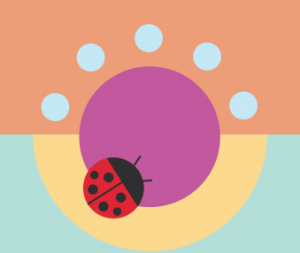Attachment theory and how it impacts on our relationships
Attachment theory is a whole field of research on how the way you were loved as an infant and little child impacts on the relationships you form later in life (and on a lot of other things).
I’d like to summarise it this way (it’s a bit more complex than this, but this is the bit that counts):
If you were securely attached in your primary relationship (typically baby to mother), i.e. if you could depend on your (emotional and other) needs being met in a consistent manner, you are likely to grow up feeling safe, trusting that your relationships will last, that your partners will stick around, that you are loved.
If your attachment was not a secure one, if your parent was “running hot and cold” (sometimes all over you, sometimes neglecting you), if you were not loved in a consistent manner, or if you were “abandoned” (that can run from completely losing your parents’ attention after a new baby is born, to gross neglect), you are more likely to grow up feeling insecure in your relationships, not trusting that they are safe.
The problem is that few of us will have experienced a perfectly secure attachment. So most of us will display one of the following “symptoms”: clinging to our partner as if our life depended on them on one end of the spectrum, to sabotaging our relationships so we won’t be abandoned by doing the abandoning ourselves, all the way to never actually becoming invested in relationships (building a wall) in order to stay “safe” at the other end of the spectrum.
Those dynamics are illustrated and explained perfectly by Alain de Botton in “The Course of Love” – a novel with subtext I can thoroughly recommend.
So what can we do, flawed beings that most of us are?
Well, awareness is a great thing. Once we become aware of our patterns, once we realise that we are reacting to something from our past triggered by our present, we can choose to act differently.
At the beginning it’s very hard. It’s about starting to see how our reaction is not justified by what is happening here and now, but rather an echo of our childhood. It’s about becoming aware that just because we have experienced abandonment in the past does not mean that our relationships today, which involve different people, will follow the same path.
It is about making ourself vulnerable, by saying our hurt, owning it, rather than blindly kicking around us in pain and blaming our partner.
It is about accepting that even though we were imperfectly looked after at some stage, it does not mean we were not loveable enough; but rather accepting that our parents were humans too, prone to tiredness, stress, and anger.
In a weird/funny/poignant way, this is what therapy is also about. It is about creating a secure attachment with the therapist, being able to trust that he or she will be there, regularly, consistently, listening, metaphorically holding you whilst you sit with the pain of finding out where all those feelings stem from, and helping you accept the past in order to write your own future.
For me as a therapist it is the most sacred aspect of my work. It is not about being a trusted advisor, a sounding board, “the expert” (beware of any therapist telling you they‘re the expert of your life); it is about offering a true relationship, that you can completely count on, for as long as you need it.




